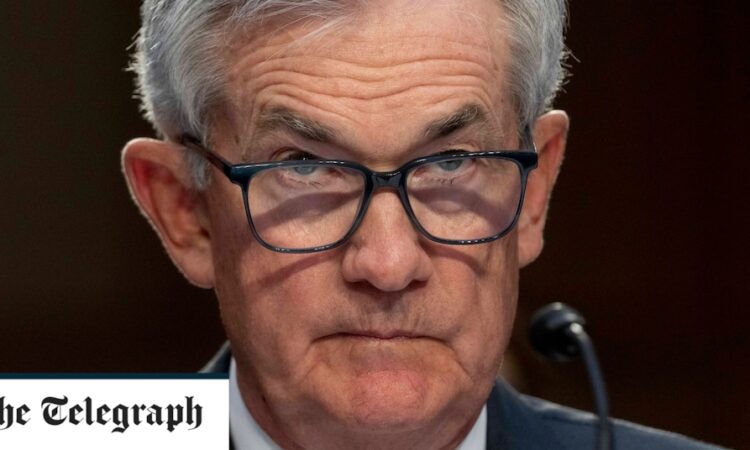
Mr Powell’s comments will pile more pressure on the Bank of England to raise rates again on Thursday, following a shock rise in inflation.
Official figures published on Wednesday showed prices rose by 10.4pc across the economy in February, breaking three straight months of declines. Inflation had been expected to fall below double digits for the first time since August.
City traders yesterday ramped up bets on the Bank of England raising interest rates by 0.25 percentage points, which would take the base rate to 4.25pc.
More than 1.4 million homeowners would face yet another increase in their mortgage bills as a result.
639,000 mortgage borrowers on tracker rates would see their payments go up by £285 a year on average if the base rate hits 4.25pc, according to the banking trade body UK Finance.
Another 773,000 on “standard variable” rates will be hit with increases of £182 a year.
A 0.25 percentage point increase would mark a slowing of the pace in rate rises from the Bank of England.
Caution is expected as the global financial system continues to feel shockwaves from the collapse of Silicon Valley Bank. Credit Suisse was forced into a cut-price takeover rival UBS at the start of this year to avoid collapse.
On Thursday, shares in Californian bank PacWest dropped 17pc after it said clients had pulled 20pc of deposits since the start of the year.
Mr Powell sought to reassure, telling journalists last night: “The banking system is strong, it is sound, it is resilient.”
He said Silicon Valley Bank was an “outlier” run by executives who he claimed had “failed badly”.
However, he said it was “clear” that rules needed to be tightened for mid-sized banks.
Mr Powell said the recent bank collapses would lead to “tighter credit conditions” for households and businesses, which would weigh on economic activity, hiring and inflation. It was too early to tell what impact this would have on monetary policy, he said.
The US central bank softened its guidance on future rate rises, with Mr Powell saying there would be “some additional hikes, maybe” depending on the data.
However, he ruled out any interest rate cuts this year. He said: “We are committed to restoring price stability.”
The deal to save Credit Suisse was a “positive outcome” that “seems to have gone well so far,” he added.
The comments came hours after data in the UK showed food prices were growing at their fastest pace since 1977.
Vegetable shortages contributed to inflation of 18.2pc for food and drink in the year to February.
Diners also faced the highest annual price rises in restaurants and cafes since 1991.
Jeremy Hunt, the Chancellor, said the inflation data demonstrated the need to continue fighting price rises.
He said: “Falling inflation isn’t inevitable, so we need to stick to our plan to halve it this year.”
Last week the European Central Bank also continued tightening with a 0.5pc rise.
Christine Lagarde, the ECB’s president, warned that inflation was “still high” and that a robust response was needed from the central bank to bring it back to 2pc.






